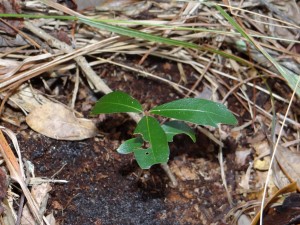Understanding the past, present, and future fate of forests on Georgia’s barrier islands is motivating a lot of work in our lab these days….
Together with Warnell faculty colleagues Nate Nibbelink and Clint Moore, we received 4 years of funding to study how multiple stressors —
deer herbivory, hurricane damage, fire suppression, and water availability— are affecting tree regeneration in different forest types on Jekyll Island. This project includes not only ecological research, but also social science to examine how different stakeholders understand the connections between deer, climate, management decisions, and the current and future of the forests on Jekyll Island. It also will include Structured Decision-Making, a methodology that helps analyze how different management strategies will deliver different degrees of “success” in terms of the range of diverse goals and values that different stakeholders may have. READ REPORTS FROM THIS WORK: |
| Complementing the scope of work on Jekyll Island, we received a NOAA/Georgia DNR Coastal Incentives Grant to conduct work on other Georgia barrier islands, investigating how
LEGACIES OF DIFFERENT LAND USES ARE INTERACTING WITH TODAY’S ENVIRONMENTAL STRESSORS to influence the structure and functioning of maritime forests, and how they may be limiting expected patterns of succession. The consequences today’s stressors, particularly deer and feral hog herbivory, are particularly dramatic.
|
| We established replicated studies of multiple stressors on 4 different barrier islands. This is particularly exciting because it is providing a more robust, generalizable understanding of what’s affecting the future of our barrier island forests, spaning areas that are managed with a wide range of different objectives. We are building a community of researchers, managers, and research projects that are all rooted in our shared reverence and fascination with maritime forests! |
 Live Oak Seedling
Live Oak Seedling